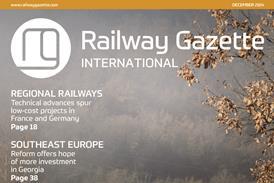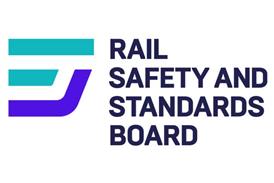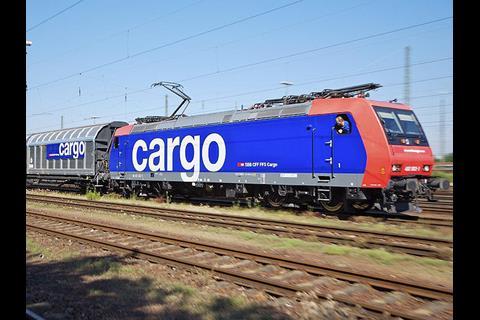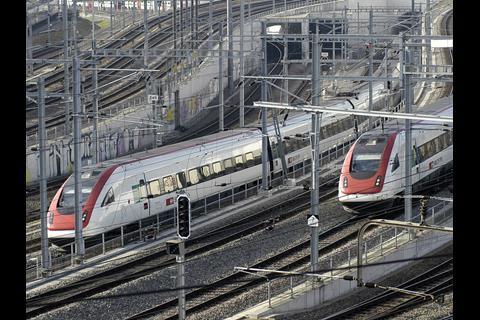SWITZERLAND: The need to provide a minimum level of network capacity for freight operators should not be understood in absolute terms, but instead all relevant interests need to be weighed up, the Federal Administrative Court has ruled in a dispute about train paths. As a result, its says the needs of a clockface passenger timetable can prevail over freight operators’ desire to have reserved capacity.
The ruling came in a dispute over the train paths required to provide a half-hourly peak service between Zürich Hardbrücke and Bülach on commuter route S3.
Passenger services previously took priority in the allocation of Swiss train paths, but in January 2017 the system was changed to give equal weight to freight operators.
The following year the Federal Office of Transport approved a network usage plan for 2019-24 which reserved some peak train paths on Zürich Hardbrücke – Bülach route for use by freight services.
The Canton of Zürich, transport authority ZVV and the town of Bülach lodged an appeal in the Federal Administrative Court, arguing that this allocation was incompatible with their plans to provide a half-hourly passenger service. As an interim measure, the court allowed the passenger service to be launched with the December 2018 timetable change.
Ruling in favour of the appeal at the end of May, the Federal Administrative Court said ZVV had been transparent about its plans to introduce the half-hourly service for many years, the canton had invested in infrastructure and rolling stock, and it was clear that the paths would actually be used by passenger services.
In contrast, the allocated freight paths had been used neither regularly nor significantly. Only one of the seven contentious paths was actually being used, and that was only for moving empty wagons.
As a result the court found that that the needs of the half-hourly passenger service should prevail over the desire to secure a minimum level of freight capacity.
ZVV said it was satisfied with this decision, which would support its long-term planning.
In contrast, SBB Cargo said it regretted the court’s decision, pointing out that freight paths need to be designed more quickly than passenger services. It said the rail freight market was changing from the overnight transport of bulk traffic to the delivery of manufactured and consumer goods, and an attractive timetable was important for freight as well as passenger services. ‘Only if SBB Cargo's trains run on time and at the right time can it be ensured that the shelves of the Migros and Coop branches are filled on time or the mail is delivered on time’, it explained.
The judgment can be appealed to the Federal Supreme Court.




















